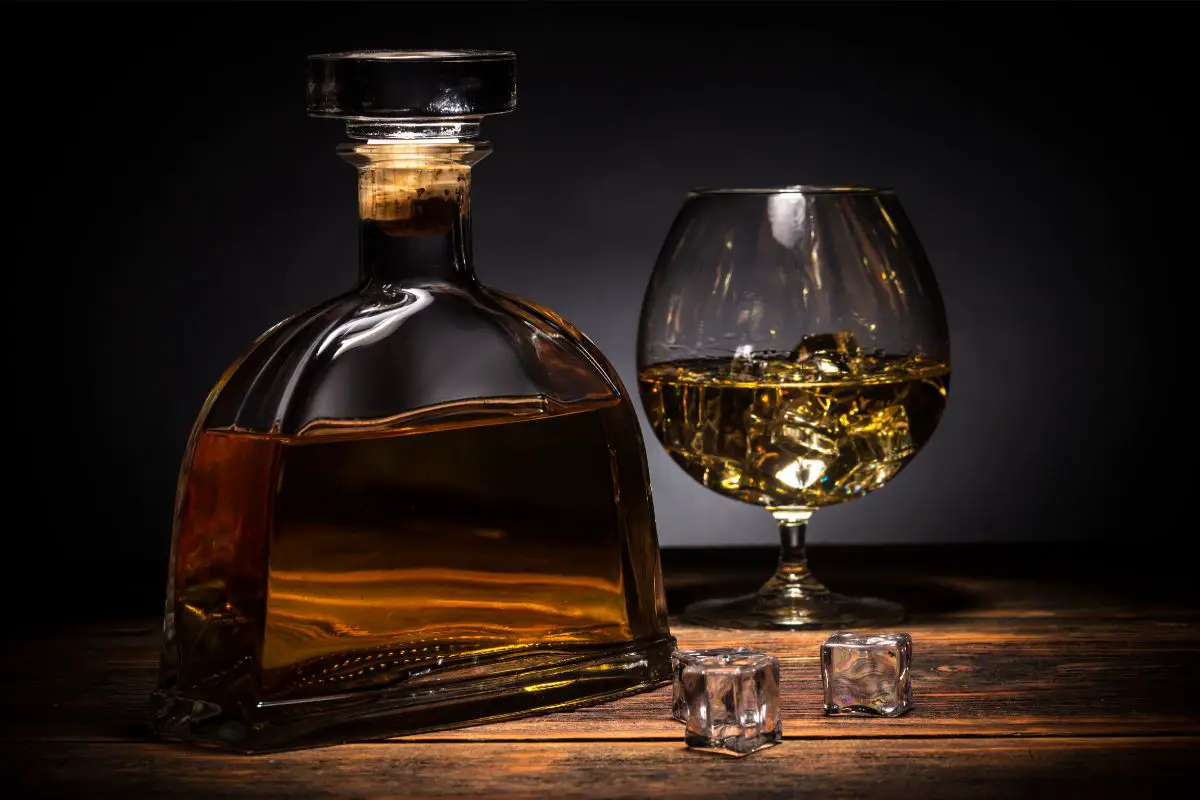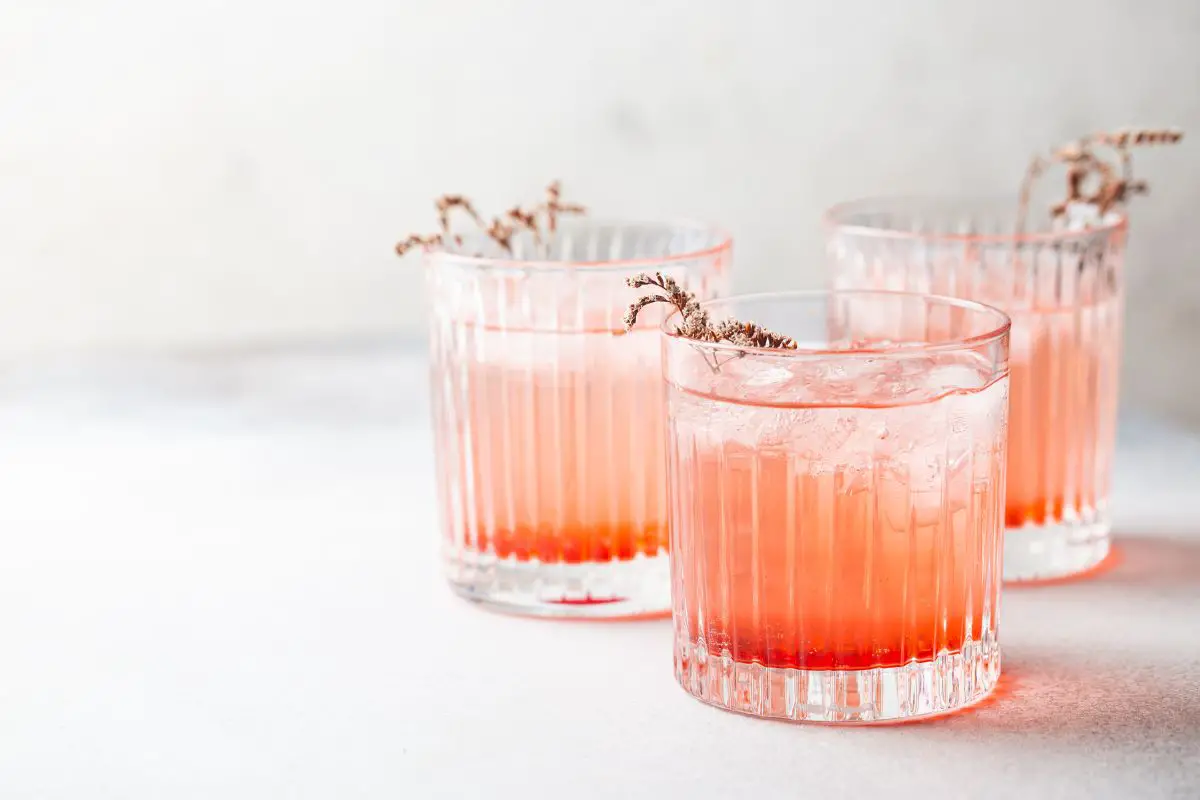Cognac is one of the most distinctive alcoholic drinks that you can find on the market. It is very pungent, coming with a distinctive smell and taste that is not to everyone’s palette. The main ingredient in this drink is distilled wine.
However, it is not only used for drinking, but you can also add it to plenty of dishes, giving it that extra mouth-smacking flavor.
However, even if you do not like the taste of cognac, you might still be looking for something that makes the hairs on the back of your neck stand on end.
So, what drinks can you get that is like cognac? There are plenty of alternatives available, ranging from sherry to brandy to Armagnac. So which one is the best for your needs? Keep reading this article to find out more.

Cognac – A Brief History
Cognac is a drink that originates in France and is made from grapes that are pressed in the region. These grapes are distilled in copper pots and then aged in oak barrels for roughly 2 years.
This drink is very sweet and is only really drunk in smaller amounts. It has vanilla and oak tinges to it, along with some fruity undertones.
Cognacs are aged for different periods of time, with younger cognacs having a more simple flavor and older cognacs being far more complex in terms of taste and texture. Young cognacs also tend to be a lot fruitier.
Most cognacs are drunk in cocktails or on their own, either on the rocks or neat. There are a few different varieties of cognac, including Very Special (VS), Very Superior Old Pale (VSOP) and Extra Old (XO).
But what if you are not a fan of traditional cognacs? Well, there are a few substitutes that you can choose from. Here are just a few of the primary ones:
Best Cognac Substitutes
1. Brandy
This is another type of liquor that is made from distilled wine. The only difference between this and cognac is that brandy can be made from any type of grape, rather than a grape from a specific region in France.
There are plenty of varieties of brandy that you can find out there, each one aged differently and providing you with a different flavor profile and texture.
You can get some cognacs that are very light with an earthy aftertaste, while others have a much heavier effect on the tongue.
If you are trying to substitute cognac in a recipe, then we would suggest that you use brandy, as this has a similar flavor profile. You’ll need to make sure that you match the type of cognac that is required with a similar type of brandy.
If your recipe calls for a fruity cognac, then try and find a fruity brandy.
You might have to shop around for brandies until you find the right one, but you will get there eventually. Brandy is also a good affordable alternative to cognac.
2. Sherry
This next cognac substitute is a fortified wine that hails from Spain. This is actually a mixture of wine and brandy that is then placed in an oak barrel to age at different lengths of time to create different flavors.
There are many flavor profiles for sherry, whether it is dry and fruity or more full-bodied and earthy. What determines the flavor of sherry is how long it has been left to age and what grapes have been used. You can use grapes from any region for sherry.
If you are cooking, sherry is another great substitute for cognac, as it is very similar in flavor. However, once again, you’ll have to make sure that you can find a sherry that has a very similar flavor profile to the variety of cognac required for the recipe.
3. Armagnac
This is another liquor that comes from France, made from a distinctive type of grape that is grown in the region. This is a much richer liquor, coming with a strong body flavor that you can be sure will add a sweet punch to your
This has a much higher alcohol content than cognac, which means that you might have to add less of it to your recipe if you are switching it out.
Due to the fact that there is only a certain type of grape that is used, there isn’t a lot of variety in the flavor of Armagnac.
However, the aging process will determine the final flavor of your liquor, so make sure you pay attention to the label to see how long it has been aged.
4. Whiskey
This is a great alcoholic drink that is made from many different types of grains, including barley, rye, corn and wheat. Whiskey is aged in wooden barrels that are made from white oak, although you can get them aged in other barrels.
If you are going to be using this for cooking, then you’ll need to be aware of the fact that it has a completely different flavor profile from cognac. Whiskey is generally not sweet unless you use bourbon whiskey, which has more of a vanillery flavor.
Most whiskeys have been described as peaty and earthy with a pepper texture to them. Whiskey is often drunk on its own, either with ice or without, although it can be added to certain cocktails like a mint julep or a winter whiskey sour.
Remember: cognac has a richer and sweeter flavor, while whiskey is a lot harsher with smokey overtones.
5. Rum
This is a drink that has a very sugary texture, as it is made from sugarcane.
This makes it quite like cognac, although the taste is far less syrupy and has some vanilla notes to it. If you are going to add this to a recipe, then expect a slightly lighter flavor.
The most popular way to enjoy this drink is either with ice, on its own, or with a soda mixer, usually coke. You can also use this in cocktails such as coconut rum punch, coconut margarita, and banana daiquiri.
If you are on a budget, then we would recommend that you use rum instead of cognac. If you don’t like the strong sweetness of cognac, then you should consider rum as one step down from that.
However, the sweetness of the rum will get diluted, so you might not experience that strong a flavor.
6. Bourbon
This one we mentioned earlier under the whiskies, but it deserves a separate section all by itself. This comes with warm vanilla notes, which definitely mimic the flavor of cognac, albeit on a slightly lighter scale.
If you are trying to replace cognac in a drink, then we would certainly recommend bourbon. This drink also adds a splash of caramel and oak, which might be preferable to the strong fruity flavor of cognac.
You can also get some bourbons with honey in them that will be closer to the intensely sweet flavor of cognac. You can try mixing bourbon in with cocktails that usually require cognac like a sidecar or a Sazerac.
7. Calvados
This final drink is a brandy that is made from either apples, pears or a mixture of both apples and pears. Because of the fruity texture of this drink, it bears a very close resemblance to cognac, which makes it a great replacement in both cooking and cocktails.
This is often combined with ice cream to make a dessert called Coupe Normande. It is a great liquor that you can add to various types of sweet treats.
This brandy has to be aged for at least 2 years, although it can be aged up to 6 years or longer for a more complex flavor palette.
The more that you age this brandy, the darker it gets in color. There are many hints of a variety of flavors in this brandy, from chocolate to caramel to butterscotch and nut. There are also strong overtones of aged apples and dried apricots.
Frequently Asked Questions
What Recipes Use Cognac?
Conclusion
Hopefully, these cognac substitutes have helped you to find a sufficient replacement for your sweet liquor. Make sure that you get a drink that mirrors the sweet and fruity flavor of your cognac.
7 Great Cognac Substitutes
Course: Substitutes4
servings30
minutes40
minutes300
kcalIngredients
Brandy
Sherry
Armagnac
Whiskey
Rum
Bourbon
Calvad
Directions
- Decide on what substitute you need
- Pick a substitute from the list above
- Read what you need to substitute with
- Create the recipe and enjoy
Recipe Video
https://www.youtube.com/watch?v=EdyVTzzntSoVideo can’t be loaded because JavaScript is disabled: What Is Cognac? | Everything You Need to Know (https://www.youtube.com/watch?v=EdyVTzzntSo)- What Exactly Do Chickpeas Taste Like? Is There A Distinct Flavor? - September 30, 2023
- Top 11 Low Carb Options at Sonic Drive-In for Keto Diet - September 30, 2023
- What Should You Serve Alongside Potato Salad? 8 Incredible Side Dishes - September 30, 2023











